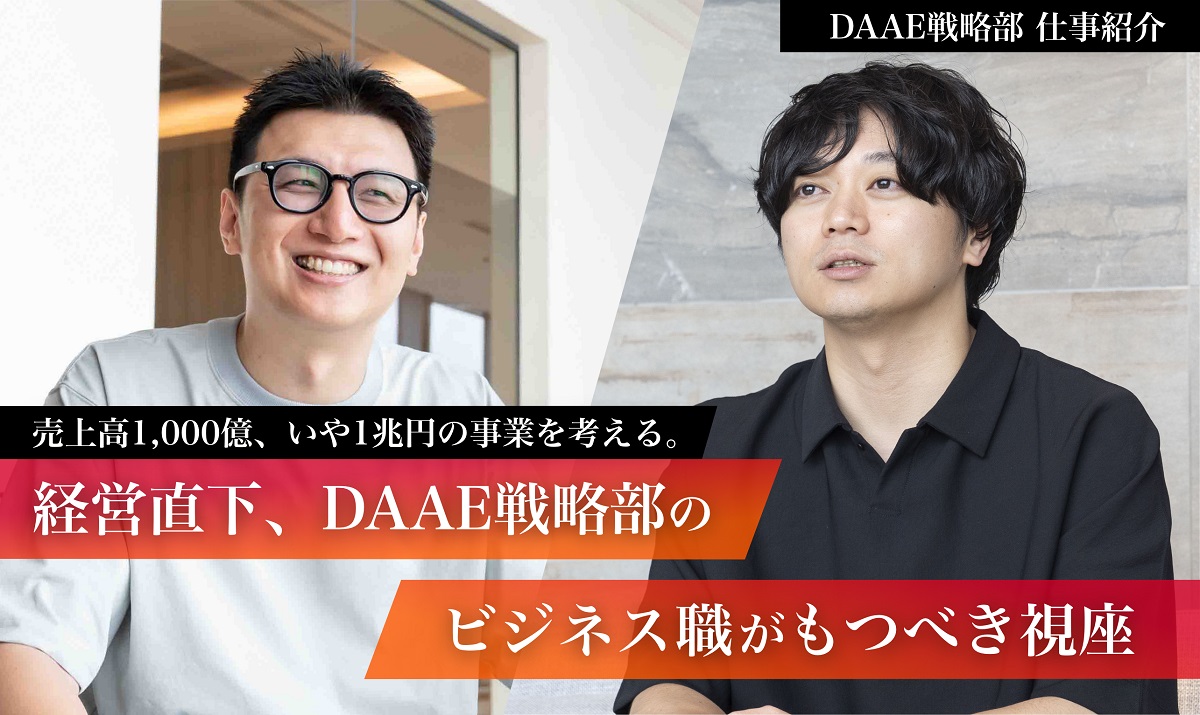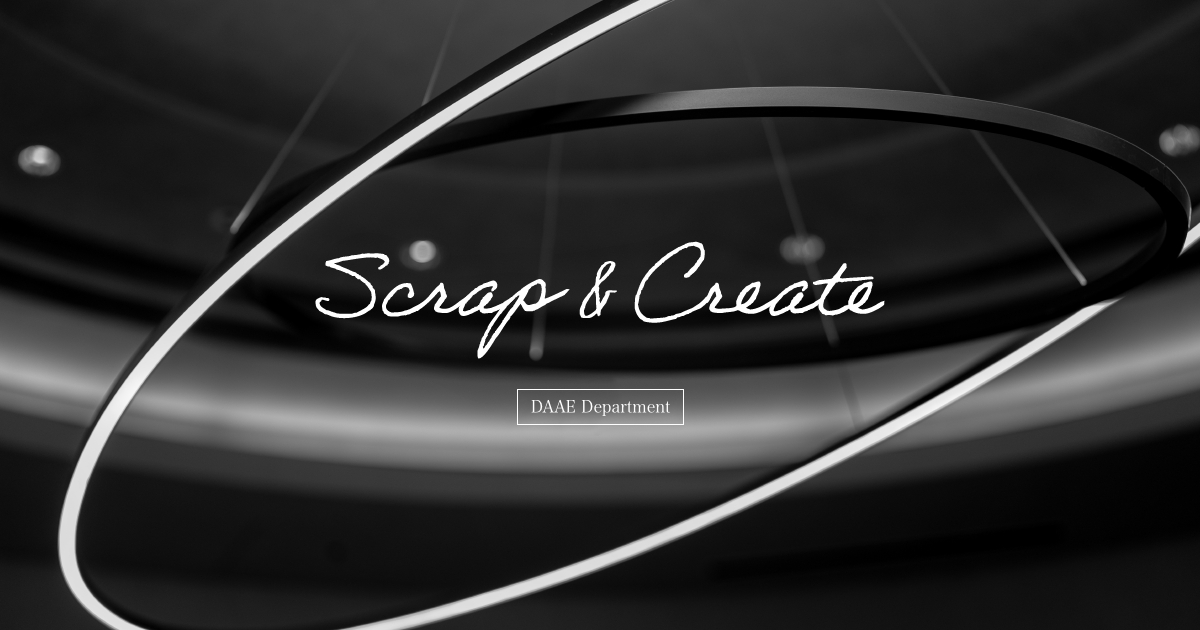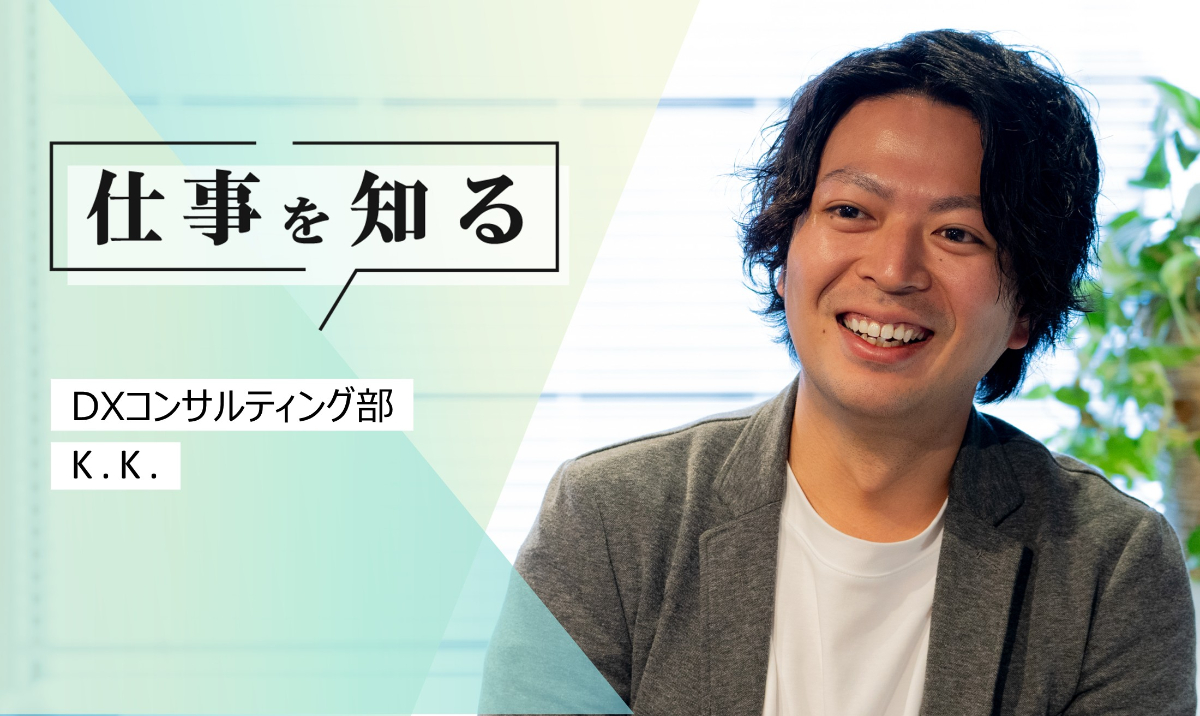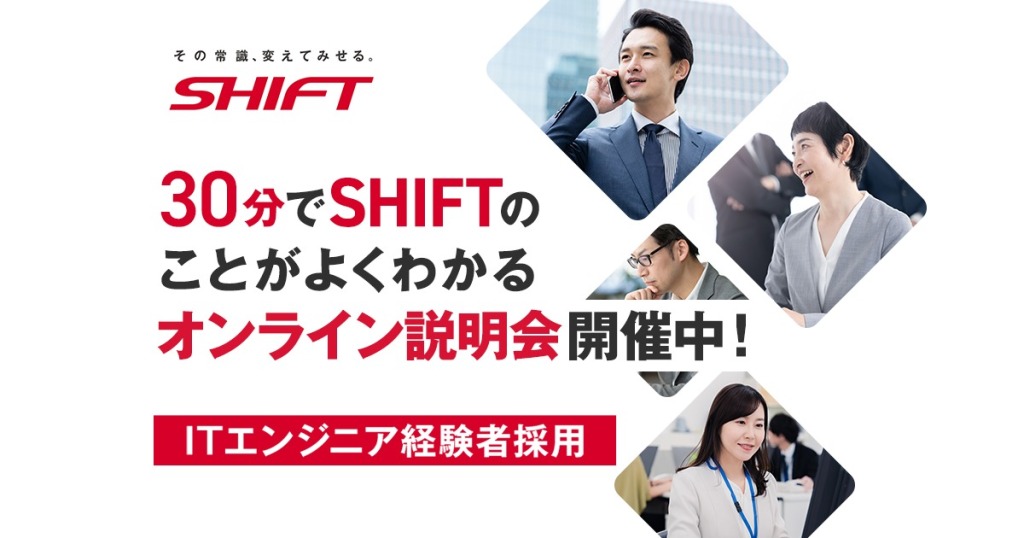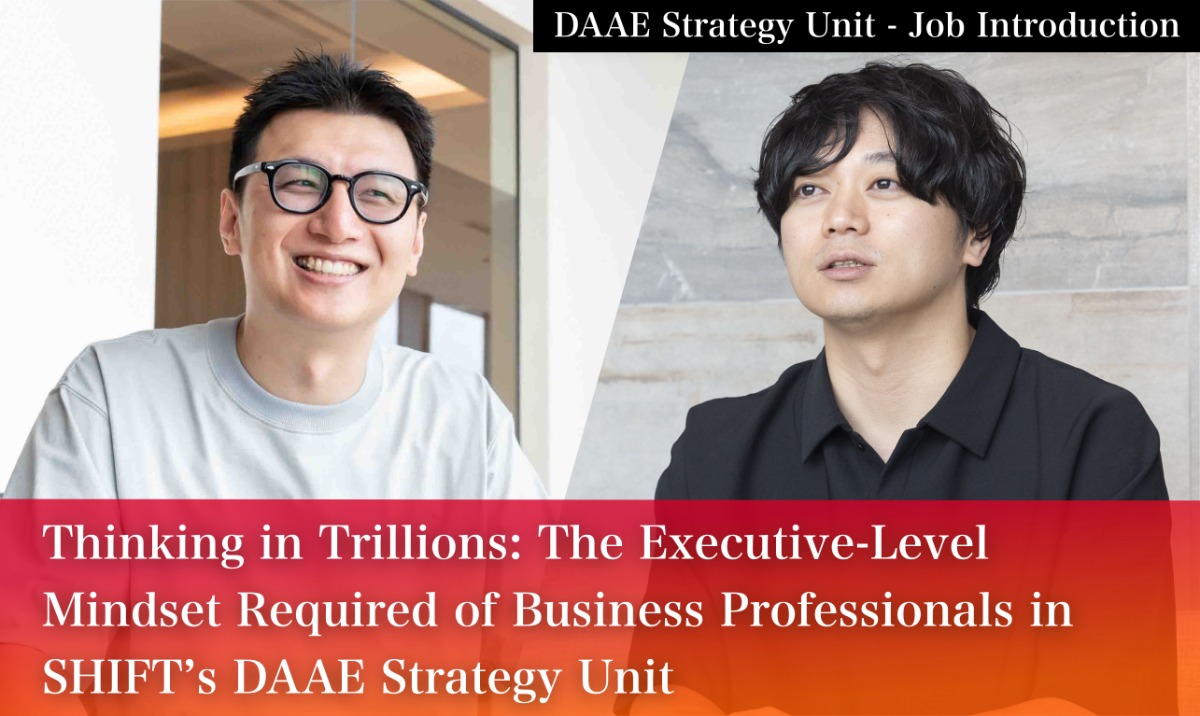
Thinking in Trillions: The Executive-Level Mindset Required of Business Professionals in SHIFT’s DAAE Strategy Unit
The DAAE Strategy Unit at SHIFT is constantly working on the creation of new products and services in its mission to build the next major business pillar for the company.
From corporate value enhancement consulting to donation platforms, the department has continually planted seeds for new businesses.
Department Head, Shoki Okura, comments:
“If your business idea has a TAM (Total Addressable Market) of just 100 million or even 1 billion yen, people will ask, ‘Why would SHIFT do that?’ You need to be thinking in markets worth at least one trillion yen.”
That’s right—the target is trillion-yen-scale businesses.
To achieve this, business professionals in DAAE are expected to adopt a CEO-level perspective in their daily work.
But what does that look like in practice? We spoke with two members of the team to find out.
-
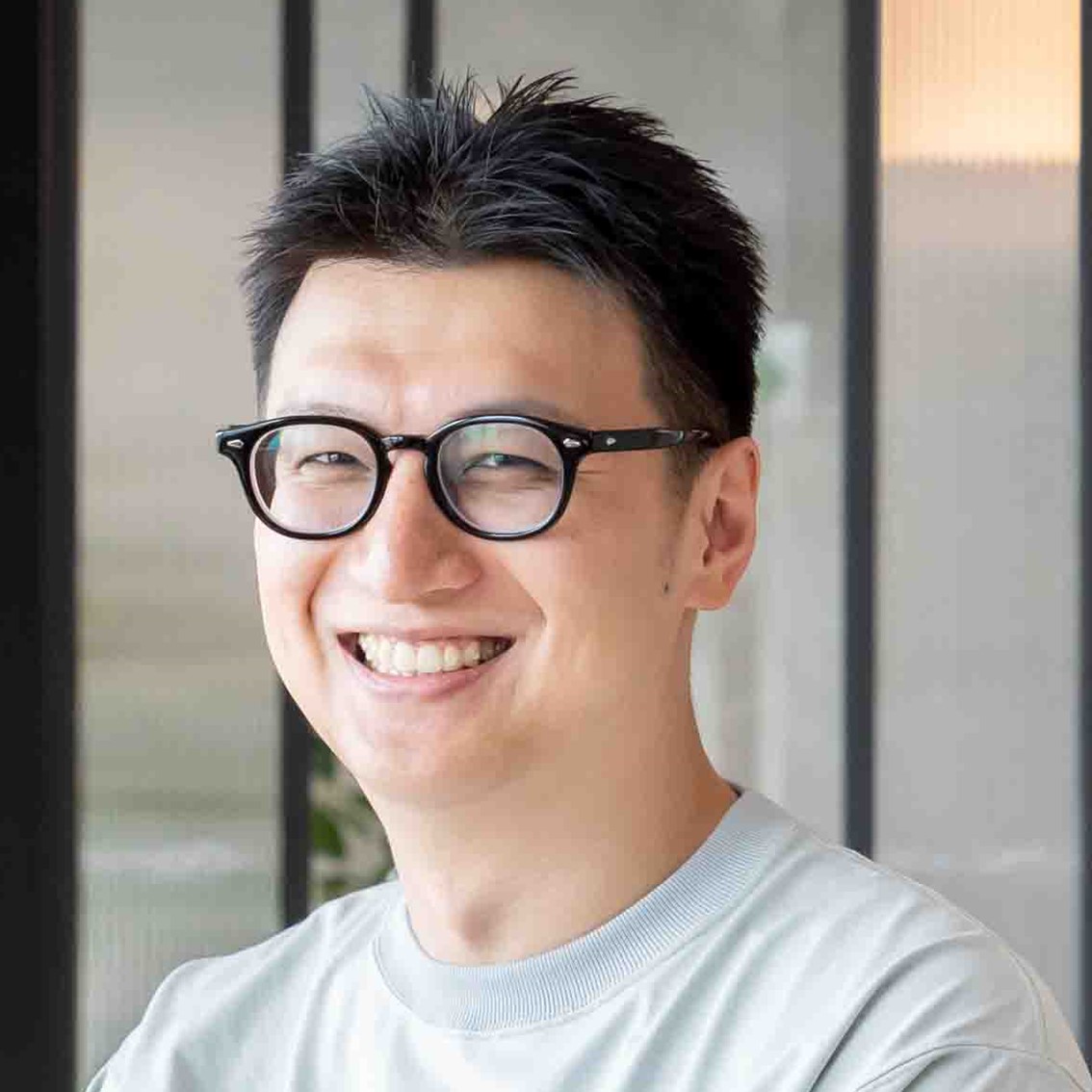
DAAE Strategy Unit, Director, Shoki Okura
After graduating from university, Okura worked at Fujitsu and PwC Consulting before joining SHIFT in September 2022. In his previous role, he spent nearly a decade supporting the development and implementation of new business and DX strategies for automotive and retail clients, handling over 30 projects. At SHIFT, he now leads product planning, sales and marketing for in-house products, as well as value enhancement for capital partners, and M&A-driven business creation.
-
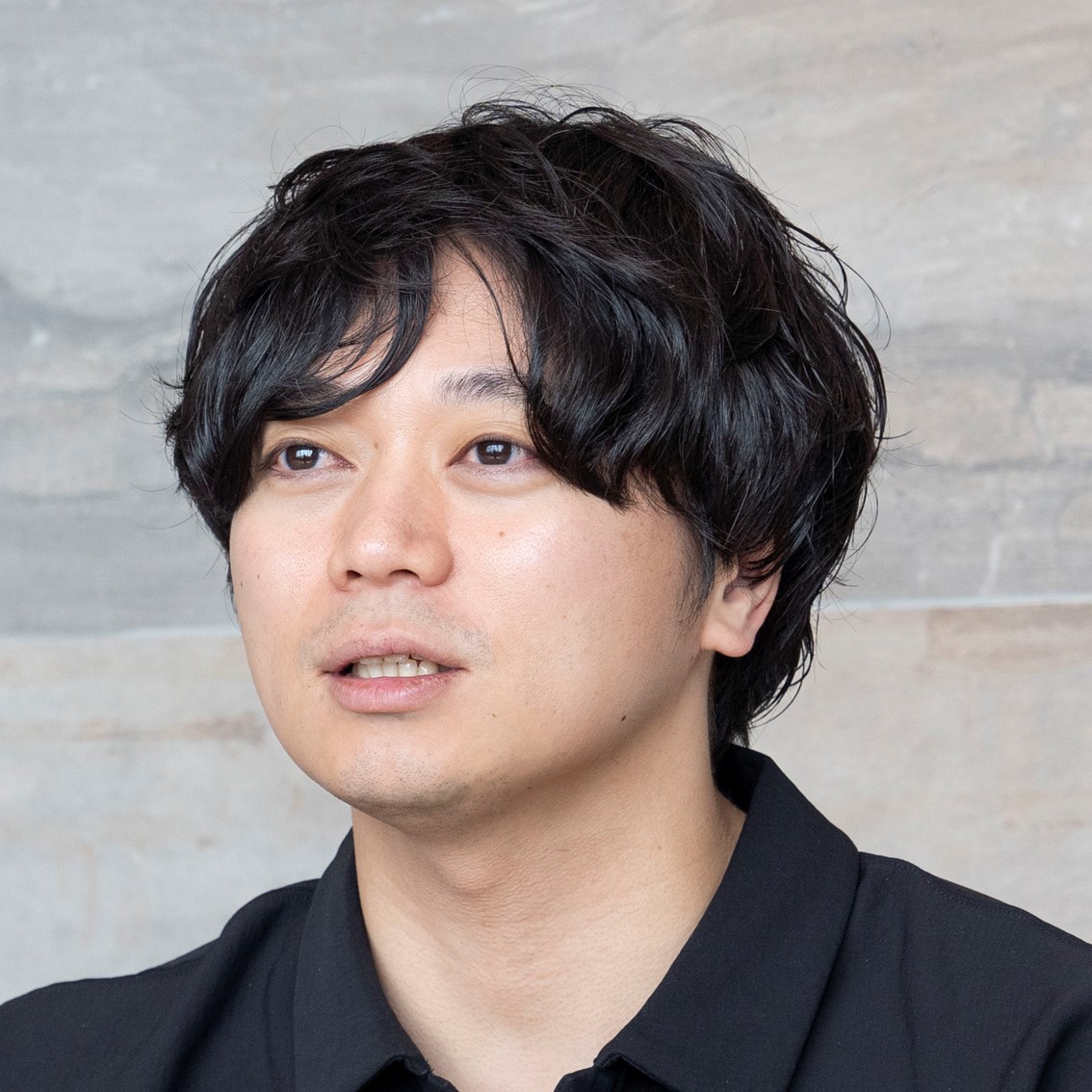
DAAE Strategy Unit, DAAE Group, Sato
After graduating from university, Sato joined Hakuhodo, where he worked on brand promotions and marketing strategies for clients in food, beverages, theme parks, finance, and medical testing. In July 2023, he joined SHIFT, where he now leads service development and promotional planning across multiple projects in the DAAE Strategy Division.
Table of Contents
Synergy among diverse team members — tackling challenges through our collective strength.
Q: Could you both describe your current roles?
Okura: In a nutshell, the DAAE Strategy Division works to turn executive leadership’s ambitions beyond the QA business into reality.
We’re developing multiple in-house products while also exploring joint ventures with clients, M&A, and capital alliances.
There’s no defined scope—we’re here to build services and knowledge that SHIFT can leverage company-wide.
Sato: I’m currently working with Japan Heart, an international medical NGO, on a service aimed at making “donation” more accessible in Japan.
I joined in December 2023, and we’re targeting a full renewal launch this summer.
I’m also involved in promotional planning for a new business developed with a client, and I handle ad operations for our in-house service “EVAC,” among other projects.
Q: Sounds like DAAE business roles cover a lot of ground.
Okura: Definitely. Since we receive a broad range of ideas from the executives, it’s common for members like Sato to manage multiple projects.
That’s why people with a “bring it on!” attitude who enjoy variety tend to thrive here.
DAAE is still in its early stages, constantly pivoting in a positive way. You never quite know what you’ll be doing tomorrow. Enjoying that kind of chaos and change is essential.
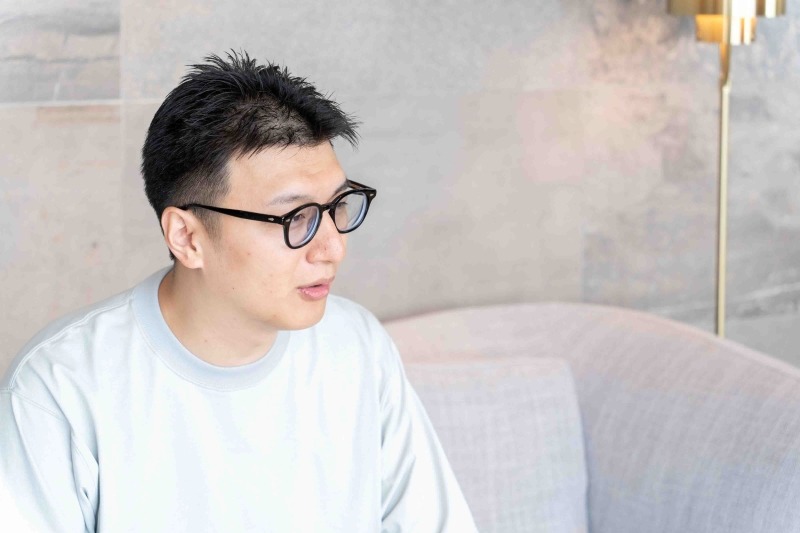
Q: Sounds like a high bar for self-management. How do you approach hiring?
Okura: We focus less on experience and more on mindset. We don’t care much about background—in fact, we value diversity.
Q: Why is that?
Okura: Because executive requests are so diverse—ranging from M&A and strategic themes to marketing, sales, and tech.
Sometimes we need someone strong in sales; other times we need someone who can dive deep into technical discussions.
There’s no way a single person can handle everything, so we rely on the “collective strength” of a diverse team working together.
Q: Sato, coming from a large corporation, how have you found working at DAAE?
Sato: It’s incredibly stimulating. The team is very diverse—even among designers, some come from ad agencies, others from web production.
Words I assumed were universally understood sometimes carry different meanings depending on a person’s background, and that leads to unexpected, out-of-the-box ideas. It’s fascinating.
At the same time, the freedom here is a first for me, and if I’m not careful, I catch myself falling back on narrow thinking.
Since we’re building from zero, even KPIs have to be defined from scratch. Ideation itself is hard work.
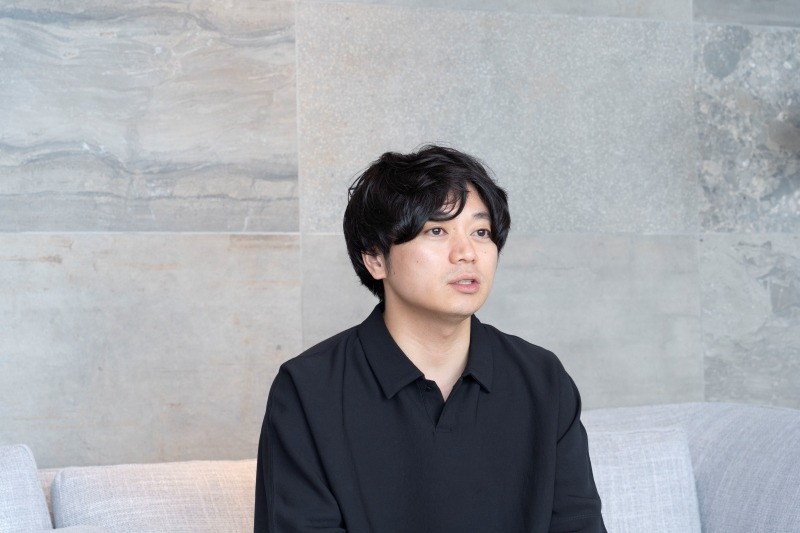
Okura: Our only goal is to build massive businesses that will support the next generation of SHIFT. As for how we get there—we let individuals play to their strengths. We don’t micromanage.
If someone uses their previous experience to create new value for SHIFT, that becomes a new weapon for us.
Even I don’t need to check with our CEO, Tange, on every little decision. Of course, I report on direction, progress, and next actions—but I’m trusted to act.
Climbing Japan’s Highest Mountains: Lessons from SHIFT’s CEO
Q: Why did you choose to join SHIFT?
Sato: At my previous job, I was in charge of proposals to key clients—developing annual promotion strategies, designing media plans, and battling through competitive pitches.
But over time, I wanted to get involved earlier in the process—before promotions, during product development.
I also wanted to contribute more directly to sales and business growth. That’s when I found SHIFT.
Q: Any surprises after joining?
Sato: The speed is much faster than expected. I’d expect a week for decision-making, but here, conversations that might normally take days get resolved in hours over chat.
Yet, the depth of discussion is still substantial.
Q: Okura, what drew you to SHIFT?
Okura: I had the chance to speak with our CEO, Tange, while still at my previous job. I found him fascinating.
He didn’t ask me to fill a specific position—he wanted to talk about “breaking the subcontracting pyramid” and “how to scale SHIFT faster.”
I was drawn to his high-level vision. I felt that by supporting his ambitions, I could increase my own market value, and that’s why I joined.
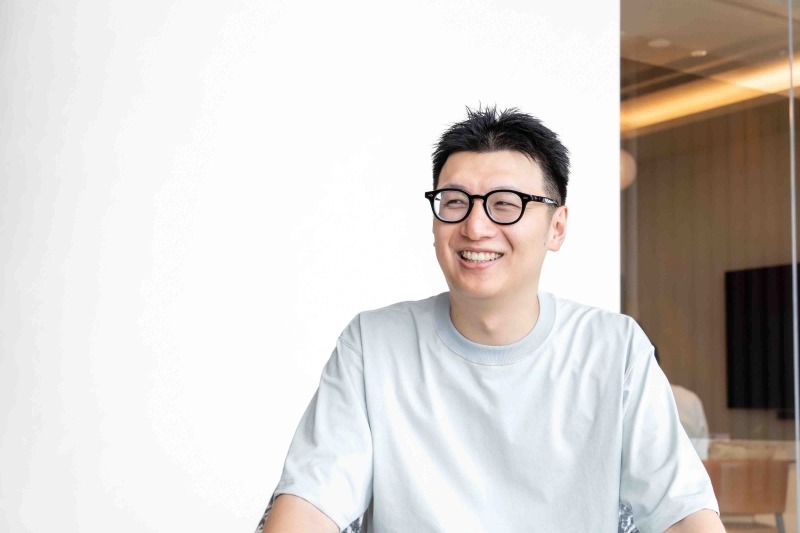
Q: Now that you work closely with him, what impresses you most?
Okura: His decisiveness.
For instance, we were discussing expanding the sales of “Manpuku” (our corporate hometown tax benefit service), and he said, “Let’s start by climbing Japan’s highest mountain.”
Meaning: let’s go pitch a group of one million people. Totally unexpected.
But tackling that big challenge uncovered countless hidden issues—which was the point. That changed the way I view business.
Tange often says, “If you can’t reduce your business to a simple formula like unit price × volume, it won’t scale.” He constantly pushes us to think: “How can this become a massive business?”
Challenging Norms, Solving Social Issues
Q: What kind of career can only SHIFT offer?
Okura: The chance to grow alongside SHIFT’s growth curve. Right now, none of our products or services have scaled massively, but when they do, that growth will be explosive.
Q: How many business members are in DAAE right now?
Okura: About five. We’re still in the launch phase, heavily dependent on individual skills—but we’re aiming to expand and mature simultaneously.
Q: What kind of people do you want to join?
Sato: Okura often says, “As long as we get to the moon, the route is up to you.” As long as we agree on the final goal, the method can be whatever plays to your strengths.
I personally resonate deeply with our company’s stance of challenging the world by striving to change conventional thinking. I’d love to work with others who share that vision and mindset.
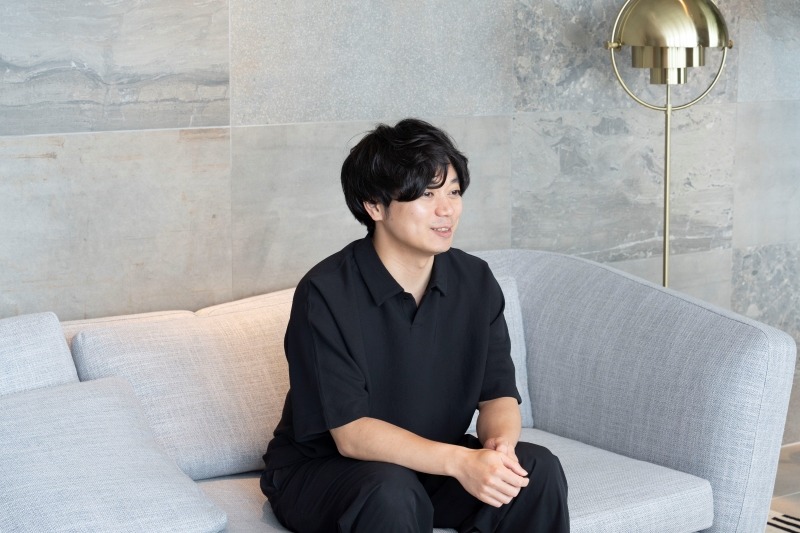
Q: What are your personal or organizational goals moving forward?
Sato: I want to develop and deliver a flagship product that solves a major societal issue and becomes widely recognized.
Okura: It’s still too early to focus on immediate results. Right now, I want to keep sowing seeds—finding big markets in the “SHIFT way,” and attacking them with a unique angle.
Eventually, we’ll find best practices, standardize them, and turn them into powerful tools.
Q: Finally, what mindset should a DAAE business member have?
Okura: You need to think about how to scale a business to 100 billion—or even 1 trillion—yen in revenue. The most valuable thing is to internalize Tange’s way of thinking.
Picture a team of “mini-Tanges.” That’s the kind of environment we’re building. (laughs)
(*The content of this article and the affiliations of the interviewees are as of the time of the interview.)





